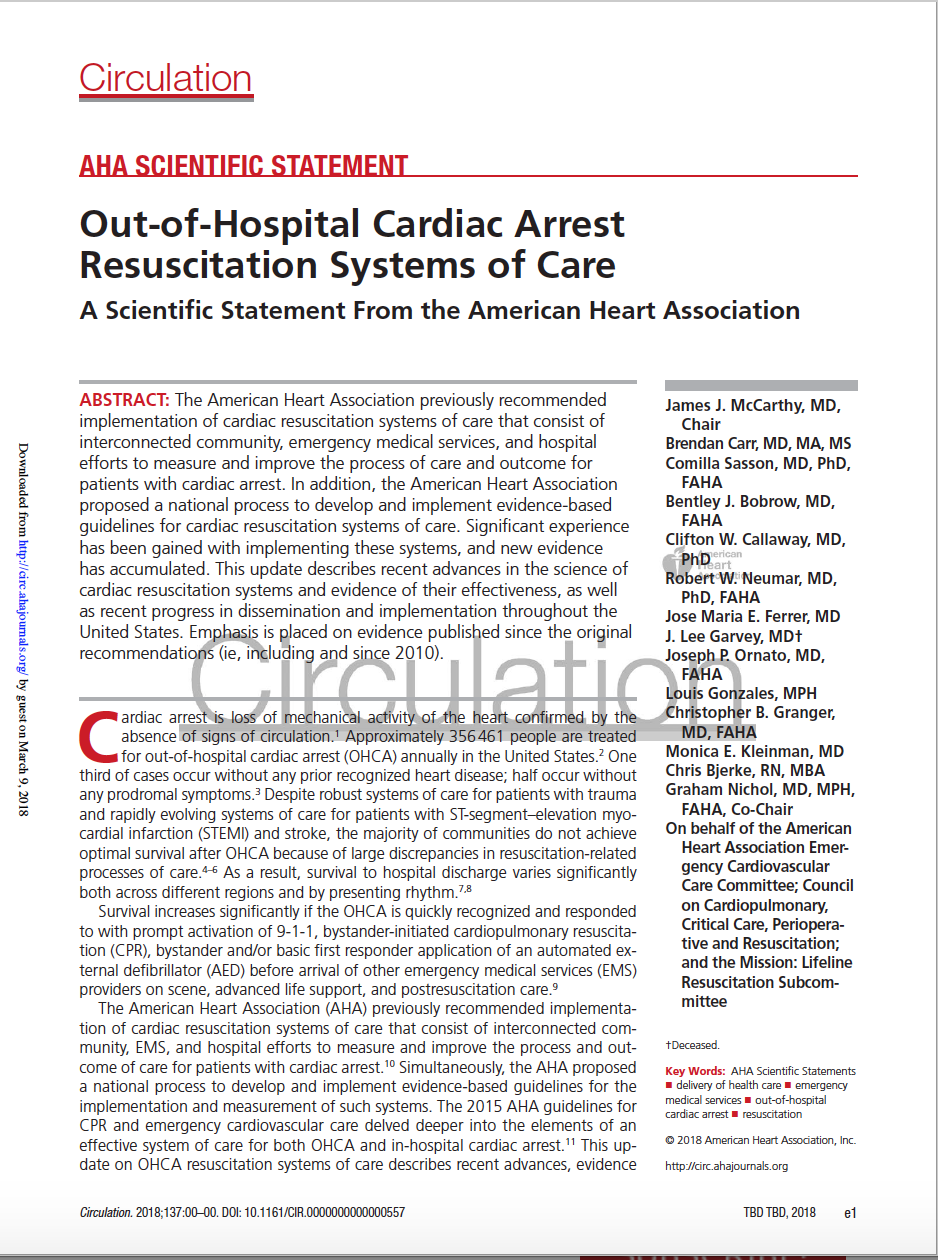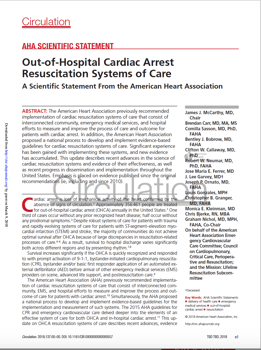Pulsara Around the World - February 2026
January Recap The start of 2026 was on the slow side for our events schedule, with our team heading to the Florida Fire & EMS Conference, the...
 James Woodson, MD
:
Mar 09, 2018
James Woodson, MD
:
Mar 09, 2018

Recently, the AHA released recommendations that cardiac resuscitation systems of care be put in place and should involve "interconnected community, emergency medical services, and hospital efforts to measure and improve the process of care and outcome for patients with cardiac arrest."
 Despite robust systems of care for patients with trauma and rapidly evolving systems of care for patients with ST-segment–elevation myo-cardial infarction (STEMI) and stroke, the majority of communities do not achieve optimal survival after Out-of-Hospital Cardiac Arrest because of large discrepancies in resuscitation-related processes of care.
Despite robust systems of care for patients with trauma and rapidly evolving systems of care for patients with ST-segment–elevation myo-cardial infarction (STEMI) and stroke, the majority of communities do not achieve optimal survival after Out-of-Hospital Cardiac Arrest because of large discrepancies in resuscitation-related processes of care.
As a result, survival to hospital discharge varies significantly, both across different regions and by presenting rhythm.
We need to unify our approach to systems of care for ALL time sensitive emergencies.
Read the Circulation publication on efficacy of systems of care here.

January Recap The start of 2026 was on the slow side for our events schedule, with our team heading to the Florida Fire & EMS Conference, the...

Recent research shows how Pulsara was successfully leveraged to connect more than 6,000 COVID-19 patients to monoclonal antibody infusion centers via...

At Pulsara, it's our privilege to help serve the people who serve people, and we're always excited to see what they're up to. From large-scale...